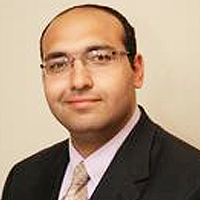Hydrogel-Based Formulations for Drug Delivery to the Posterior Segment of the Eye
Published on: 12th September, 2023
Hydrogel-based formulations hold significant promise for treating ocular diseases that impact the posterior segment of the eye. These formulations exhibit the ability to surmount ocular barriers and offer sustained drug release, rendering them efficacious drug delivery systems. This article addresses the challenges linked to treating disorders affecting the posterior eye segment and underscores the imperative for less invasive drug delivery methodologies. We further delve into diverse contemporary ocular dosage forms, encompassing gels, nanostructures, and implants, with a specific emphasis on hydrogels. Hydrogels offer several merits, including precise targeting, sustained release, enhanced bioavailability, and non-invasiveness. Moreover, they curtail the risk of adverse effects and foster patient adherence. An enthralling advancement is the amalgamation of hybrid drug delivery systems, integrating nanoparticles, liposomes, dendrimers, and stimuli-activated nano-systems, with hydrogels for posterior eye ailment treatment. These hybrid nano-systems exhibit promise in enhancing drug stability, prolonging drug release, and pinpointing specific tissues within the posterior segment. We also provide an overview of ongoing clinical trials and approved hydrogel-based drug delivery systems, like Retisert and Ozurdex. These systems have demonstrated efficacy in managing chronic non-infectious uveitis, Age-related Macular Degeneration (AMD), and diabetic macular edema. Nevertheless, challenges persist, including optimizing bioavailability, maintaining drug stability, and implementing personalized treatment approaches. The incessant evolution of gel-based drug delivery systems stands to substantially enhance patients’ quality of life and establish new benchmarks in treating posterior eye diseases. The future of ophthalmology brims with excitement, as gel-based drug delivery systems hold the potential to revolutionize ocular therapies, providing effective remedies for an array of vision-related afflictions.
Evaluation of In vitro and Ex vivo Models for Studying the Effectiveness of Vaginal Drug Systems in Controlling Microbe Infections: A Systematic Review
Published on: 28th November, 2023
The survey gives an in-depth examination of medicate assimilation challenges within the genital range and the improvement of vaginal medicate conveyance gadgets to overcome these challenges. It investigates the components involved in medicate discharge within the genital locale and examines commonly utilized vaginal sedate conveyance frameworks such as nanoparticles and hydrogels. The survey centers on the applications of these conveyance frameworks in controlling bacterial vaginal diseases. The plan issues related to vaginal sedate conveyance gadgets are moreover examined, highlighting the significance of considering variables such as mucoadhesion and bodily fluid porousness. The survey portrays different in vitro and ex vivo models utilized for assessing these frameworks, counting organoids and new human cervical bodily fluid. The choice of show depends on the particular objectives and characteristics of the definition. The audit emphasizes the noteworthiness of utilizing these models to pick up important bits of knowledge and make precise forecasts with respect to the execution of medicate conveyance frameworks in vivo. Moreover, grandstands progressed models utilized for other mucosal locales as a potential motivation for future models of the female regenerative framework. Generally, the audit highlights the significance of understanding organic instruments and planning compelling vaginal drug conveyance frameworks to progress sedate conveyance within the genital region. It emphasizes the require for suitable models to evaluate and anticipate the execution of these conveyance frameworks.




